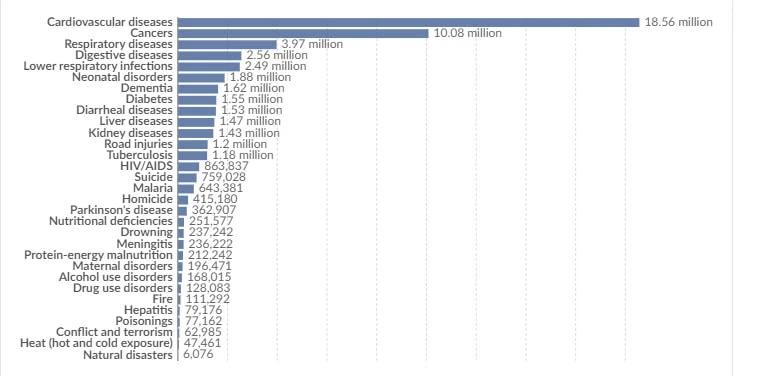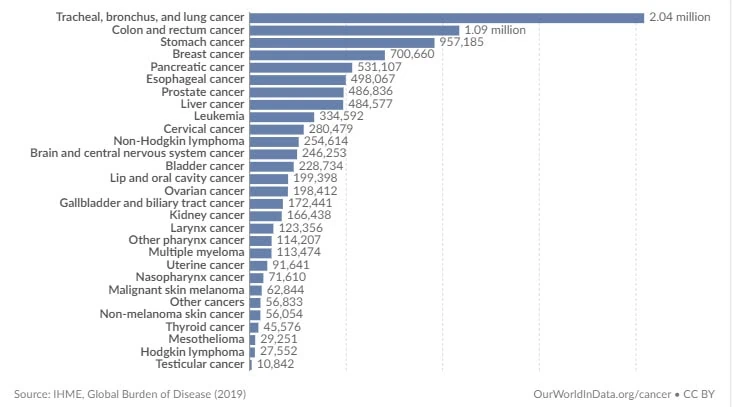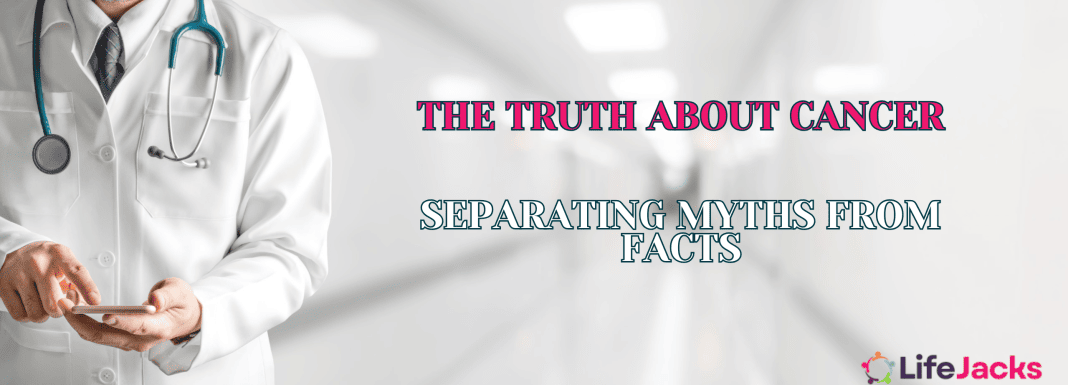We’re all going to die of something, eventually, but at the same time, we hope it will be a quick death with as little pain as possible. That ideal is hard to reach since these days we have illnesses such as cancer and heart disease as the most common causes of death.
Cancer is still a mystery in many ways, but it doesn’t mean we don’t know anything at all about it. We can’t rule out every cause of cancer and protect ourselves completely from the possibility of getting this illness. Even more, there are quite a few unfounded claims concerning the causes and treatments of cancer, making people worry about stuff they really shouldn’t and expect results when it’s not the case.
Cancer is a modern illness

There are cancer recordings in Egypt as early as 1500-3000 BC. Hippocrates differentiated the tumors as benign and malignant sometime around 400 BC. Cancer existed before these reports, but medicine was in a very primitive state, and we have no official findings. Nevertheless, cancer dates back to ancient times.
This belief most likely draws roots in our increasing cancer rate. Know that cancer risk increases with age, and our life span has significantly increased over the past century. A graph illustrating causes of death in 1900 and 2010 supports this truth. Cancer was way further down the list in the past because we didn’t live long enough to get it. Other diseases which we now treat and prevent were the main culprits.
Cancer deaths by type
Many external factors lead to cancer, and our genes play an important role in the equation. Here’s a breakdown of all cancer deaths by type; the data does not include countries with poor vital registration.

Food chemicals such as nitrates, preservatives, and additives cause cancer
Media is scaring us about various substances used to increase shelf life or improve the aspect and flavor of food products. But there’s no scientific proof to back up these claims. Some preservatives are in fact antioxidants, and we all know they have a protecting role.
Sugar feeds cancer
We all know that taking most of the daily calories from sugar will not provide us with all needed nutrients. So, health-wise, we should focus on getting most of our energy from other sources. You may have heard that sugar speeds up cancer growth, which is completely false.
All body cells need glucose (sugar) to develop and function, but it doesn’t mean giving up sugar completely will slow the growth of cancer cells, just like eating too much sugar won’t make them grow faster. This doesn’t mean you should eat a lot of sugar since increased sugar consumption is linked to obesity, diabetes, and other diseases. We’ll always advocate for a sugar detox diet, which brings a lot of benefits to your body and allows you to well, live longer. Eating organic foods is the best way to prevent cancer.
No one says organic foods are not healthy; they most definitely are. Non-organic crops may have some pesticide residues, which causes concerns for some. However, not all conventional crops are grown using pesticides, and from those that do, very few (less than 1%) do not comply with the current tolerance levels.
Organic foods can be quite expensive and in some areas, difficult to find. Do not give up on any fruit or vegetable just because you can’t find or afford organic products.

Chemotherapy and radiotherapy treatments are toxic
Short answer: Yes, they are. These treatments damage the DNA, but they were developed to target cancer cells and spare most of the healthy ones. Radiotherapy and chemotherapy cause a lot more damage to mutant tumor cells, which are more vulnerable than healthy tissue.
No one said these treatments are perfect since they cannot target cancer with 100% accuracy while leaving everything else intact. For example, chemotherapy affects cells with a rapid multiplication rate. Cancer cells fall in that category but so do hair follicles and bone marrow.
Whether radiotherapy and chemotherapy cause more harm than good or not has caused much controversy. This topic gave birth to numerous conspiracy theories. This includes the idea that pharmaceutical companies are aware of a cure for cancer but are withholding the information so they can sell drugs and other treatments which do not work.
Radiotherapy and chemotherapy are very aggressive treatments and may not work for everyone. But this is also valid for other possible cures. Many types of cancer cells are based on the organs they affect. When you factor in the uniqueness of each patient’s physiology, finding a cure that works for all cancer patients in any situation is virtually impossible. As a result, some types of cancer can be cured using radio and chemotherapy, while others require another approach.

